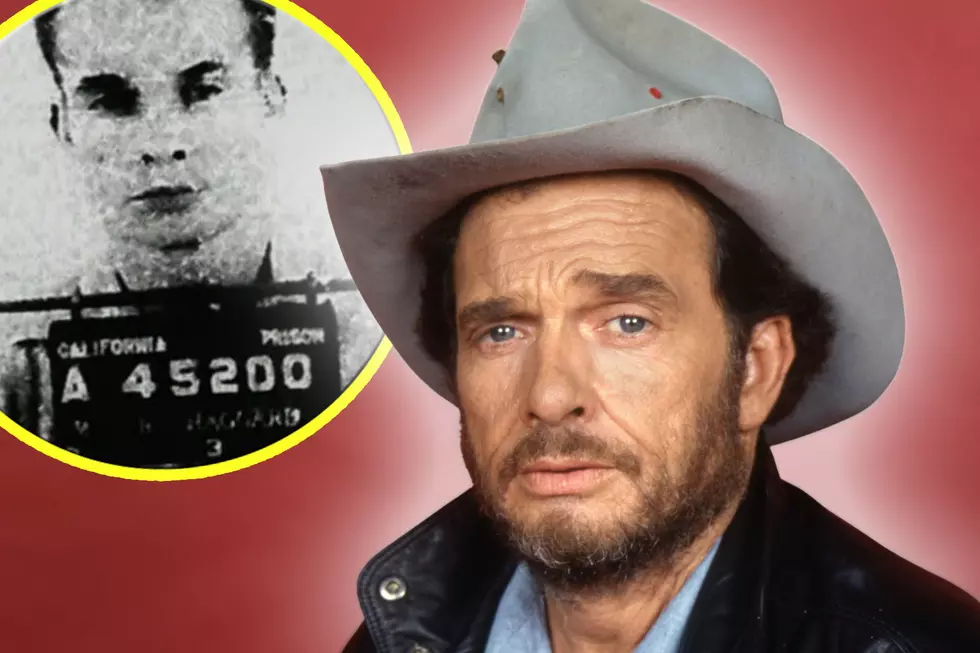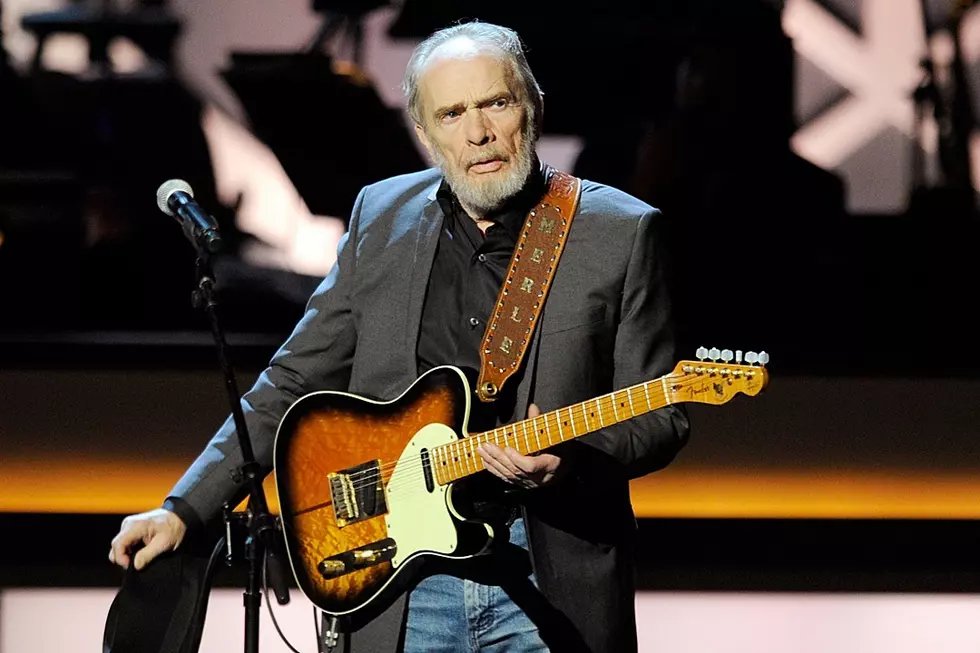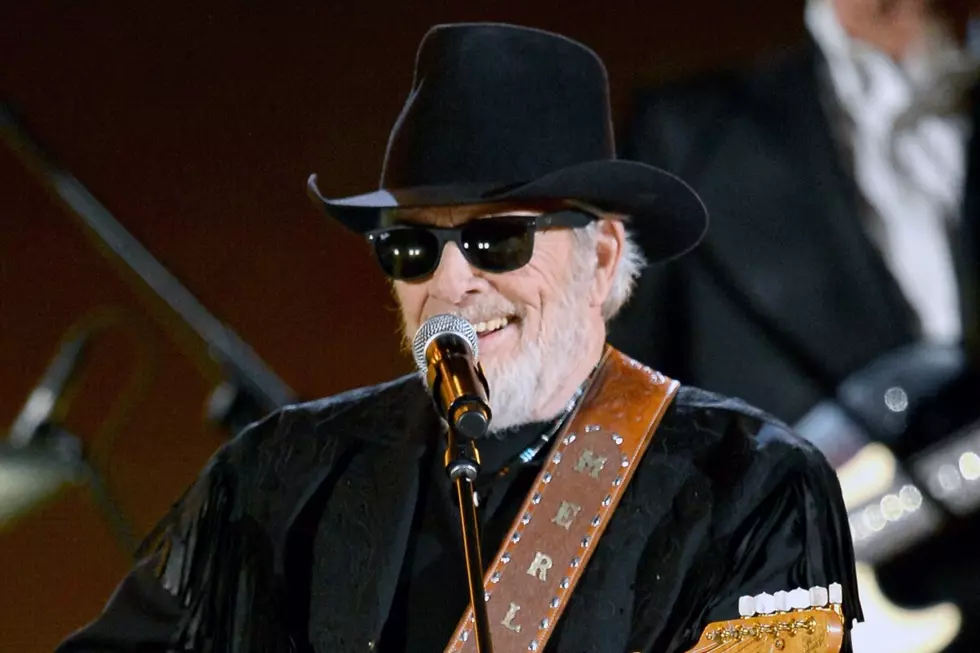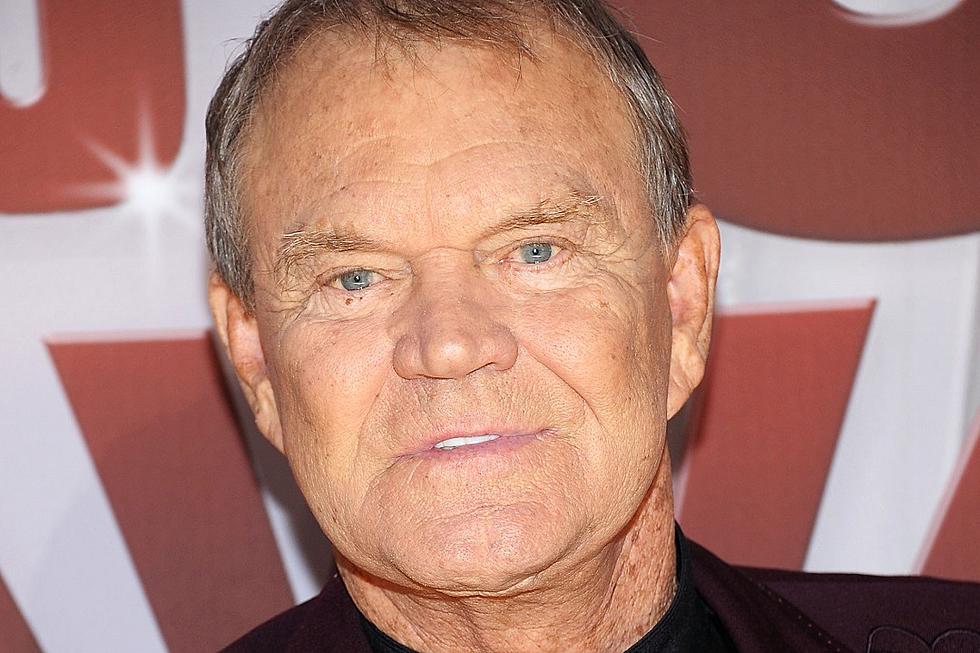
Merle Haggard Dead at 79
Merle Haggard died on Wednesday (April 6) -- his 79th birthday -- after a brief struggle with pneumonia.
Haggard first postponed some December tour dates after originally entering the hospital due to his bout of pneumonia, then canceled two concerts in New Mexico in late January as he continued to recover. After a last-minute cancellation on Feb. 2, Haggard made the decision to cancel all of his February tour dates as well, and after re-entering the hospital, he canceled all of his March shows, then his April ones.
“I’m really lucky to be alive,” Haggard said in February. “… I had a pain that went all the way around from my belly button all the way around to my back. I asked the doctor, ‘What was that pain?’ He said, ‘It was death.’”
Merle Ronald Haggard was born on April 6, 1937, in Oildale, Calif., and lived in a converted boxcar. His father passed away from a brain hemorrhage in 1945, and his mother worked as a bookkeeper to support the family. When Haggard was 12 years old, his brother Lowell gave him a used guitar.
However, that guitar didn't keep Haggard out of trouble: He had a long stint of rebellion in his younger years, including thefts, bad checks and more, and he was in and out of juvenile detention centers. But once he saw Lefty Frizzell in concert, Haggard knew that he wanted to be a singer.
Haggard's law troubles continued, and he spent time in several prisons and solitary confinement, and was even fired from prison jobs. But after a fellow prisoner was executed, Haggard vowed to turn his life around. As an inmate, he saw Johnny Cash perform at San Quentin Prison in 1959 and attributes that show as his main inspiration to join the prison band. Haggard was released from jail in 1960.
After prison, Haggard went back to Bakersfield and worked for his brother, digging ditches. He began playing lead guitar in a local country band, and by 1962, he decided to become a musician. Haggard became friends with Lewis Talley and Fuzzy Owens, the owners of Tally Records, and made his first recordings. His first 1963 release sold only 200 copies, but his second, "Sing Me a Sad Song," hit No. 19 on the Billboard country charts. He was signed by Capitol after the release of "(All My Friends Are Gonna Be) Strangers."
During that time, Haggard, along with his backing band, the Strangers, thrived. Their eponymous debut album, The Strangers, featured the single "I'm a Lonesome Fugitive," which soared to the top of country charts, and his self-penned song "Branded Man" gave him his first No. 1.
With hits such as "Okie From Muskogee," "I Wonder If They Think of Me" and "The Fightin' Side of Me," Haggard made his political views known and did not shy away from controversy. His sound pushed the boundaries of country music, and Haggard championed the working man.
Haggard released more than 100 charting country singles, earned 38 No. 1 hits and released close to 70 albums. He was able to play for President Nixon in 1973 and later performed for the Reagans. He had more than 600 songs under his belt; Haggard wrote around 250 of those himself. Fans are especially fond of his albums The Fightin' Side of Me (1970), Someday We'll Look Back (1971), If We Make It Through December (1974) and A Working Man Can't Get Nowhere Today (1977). Haggard's collaboration with Willie Nelson, Pancho & Lefty, is dearly loved, and their recent 2015 release, Django and Jimmie, was also well received and debuted at No. 1.
Throughout his career, Haggard won Entertainer of the Year, numerous Grammy Awards, a Kennedy Center Honor, the Crystal Milestone Award and countless others. Haggard was elected to the Nashville Songwriters Hall of Fame in 1977, and in 1994, he was inducted into the Country Music Hall of Fame.
Haggard married his fifth wife, Theresa Lane, in 1993; he has six children, including two -- Janessa and Ben -- with Lane. He battled lung cancer in 2008.
Country Stars Who Died in 2015
More From TheBoot







![Country Singers Who Have Admitted to Smoking Pot [PICTURES]](http://townsquare.media/site/623/files/2015/07/2015-farm-aid-lineup.jpg?w=980&q=75)

